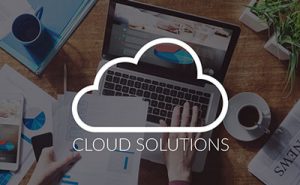In-house Server or Cloud Server: which is best for your SME?
Whether you've outgrown your existing server or are looking to replace an ageing server, now is the perfect time to review your setup.
With increasing data and applications, businesses are often left wondering whether they should invest in an in-house server or move to the Cloud. This decision however should not be taken lightly. It affects your day-to-day operations and has cost, availability, scalability and security implications. Whether your small business has outgrown its existing server or is looking to replace an ageing server, now is the perfect time to review your setup. We address the pros and cons of each option below.
In-House Server
In-house servers have traditionally been the solution of choice for hosting applications, files and emails for many businesses. The Cloud has undoubtedly grown in popularity but in-house servers remain a viable option, as outlined below: Pros:
- Complete physical control over your server
- Infrastructure can be developed to meet the specific needs of your business
- Sensitive and critical data are kept in house, without third party access
- No need to rely on an internet connection to access your data
- May be cheaper for businesses that aren’t concerned about uptime
Cons:
- Requires initial capital investment in hardware and infrastructure, as well as future upgrade investments
- Requires space in your office and incurs additional costs in terms of IT support and energy consumption
- Remote access to your data is more difficult
- Increased risk of data loss and disruption to business continuity following a disaster
Cloud Server
Cloud computing is on the rise. With improved flexibility, security, availability and scalability, it’s understandable why many businesses have migrated their data storage to the Cloud. There are many advantages of using a Cloud server, however there are also some drawbacks to be aware of. We highlight the pros and cons below: Pros:
- No need for on-site hardware or capital expenditure
- Increased mobility and productivity as data can be accessed from any location, anytime
- Ability to work remotely
- Easily scalable as the demands of your business change
- Access to sophisticated security features such as data encryption
- Data can be backed up regularly in the Cloud, reducing the risk of data loss
Cons:
- User experience is dependent on internet connection speeds
- Third party cloud services could have access to your data
- Any internet outage would prevent access to your data
- Monthly hosting costs can be higher for businesses requiring on strong up-time performance
In-House Vs. Cloud Server - Summary
In short, should you go down the traditional route and use an in-house server or subscribe to a Cloud server? As with most solutions, the answer depends on the specific needs and budget of your business. Moreover, with pros and cons for each setup, businesses may benefit from a hybrid approach. This means using a combination of both in-house and cloud based solutions, hence giving you the best of both worlds. Cloud adoption has increased year-on-year and will continue to do so for the foreseeable future. However, it must be acknowledged that Cloud services are often part of a broader IT estate and will continue to sit alongside on-premise solutions for some time to come.





